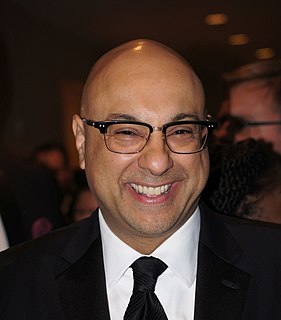A Quote by Molly Ivins
I really do think we're going through a period of concentration of ownership of media, and we're starting to see the effects at the editorial level, and it's all bad. This increased pressure for profits every quarter, smaller news hole, less coverage of important stuff - the extent that it's become one giant infotainment industry.
Related Quotes
I think we - "we," meaning the media - have generally caused Americans to consume news in smaller, less contextualized bites. I think we have sugar-coated the news. I think we have provided news that is consumable, at the expense of news that is more important. I think we have created a world in which extreme views push out moderate views.
For a long period of time, the media covered rap music and hip hop the same way they cover a lot of black people, people of color, you know, the bad news happens to be news. They used to have these little stupid colloquialisms that pop up like, "You know what? No news is bad news!" They trick the masses into thinking that any news is great for you. And I just think that's a piece of crap.
It's hard work. It's really hard work, but it's really interesting. We have this camera, I think it's called a SimulCam, and when you play it back, you can see the giant in the scene you just shot. It's incredible. You're reacting to a tennis ball that's way up there, then when you watch it, it's this huge giant's face on it. Wow. That's cool. I just can't wait to see it when it's all edited together and the special effects are all crystal clear. It's going to be, hopefully, amazing.
Media bias in editorials and columns is one thing. Media fraud in reporting 'facts' in news stories is something else. ...The issue is not what various journalists or news organizations' editorial views are. The issue is the transformation of news reporting into ideological spin, along with self-serving taboos and outright fraud.
The media is tremendously important for all governments that are able to communicate through the it. It doesn't mean there is a balance of editorial opinion that favors what you are doing or that the opposition doesn't have its voice, but you have to be able to effectively communicate your story through the media.
People tend to assess the relative importance of issues by the ease with which they are retrieved from memory—and this is largely determined by the extent of coverage in the media. Frequently mentioned topics populate the mind even as others slip away from awareness. In turn, what the media choose to report corresponds to their view of what is currently on the public’s mind. It is no accident that authoritarian regimes exert substantial pressure on independent media. Because public interest is most easily aroused by dramatic events and by celebrities, media feeding frenzies are common

































